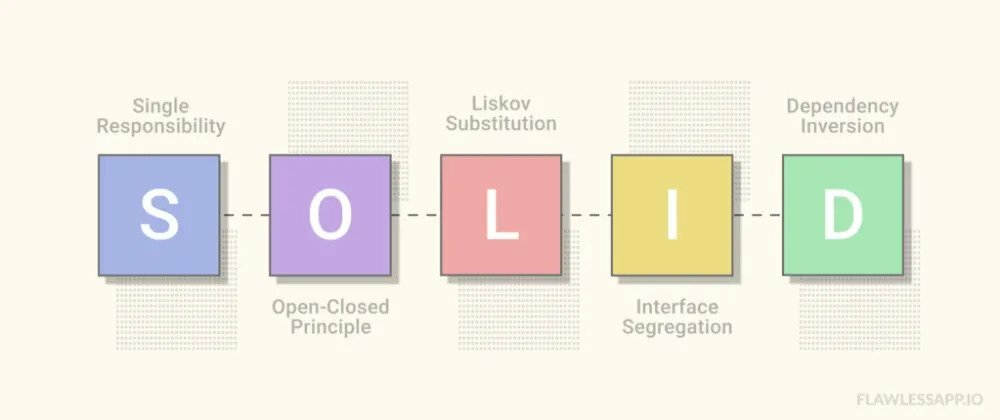The SOLID principles are a set of guidelines for writing clean and maintainable object-oriented code.
The principles were introduced by Robert C. Martin, also known as Uncle Bob, in his book "Agile Software Development, Principles, Patterns, and Practices".
The principles are widely accepted in the software development community and are considered essential for writing high-quality code.
The SOLID acronym stands for the following principles:
Single Responsibility Principle (SRP)
Open/Closed Principle (OCP)
Liskov Substitution Principle (LSP)
Interface Segregation Principle (ISP)
Dependency Inversion Principle (DIP)
Let's briefly look at each of these principles
Single Responsibility Principle (SRP): A class should have only one reason to change. In other words, a class should have only one responsibility. This principle helps to keep classes small and focused, making them easier to understand, modify, and maintain.
Single Responsibility Principle (SRP): A class should have only one reason to change. In other words, a class should have only one responsibility. This principle helps to keep classes small and focused, making them easier to understand, modify, and maintain.
Liskov Substitution Principle (LSP): Subtypes should be substitutable for their base types. In other words, if we have a base class and a derived class, we should be able to use the derived class wherever the base class is expected without introducing any errors or unexpected behaviors. This principle ensures that the code is robust and works as intended.
Interface Segregation Principle (ISP): Clients should not be forced to depend on interfaces they do not use. This means that we should break up interfaces into smaller, more focused ones, to avoid coupling between unrelated classes. This principle helps to keep the code flexible and maintainable.
Interface Segregation Principle (ISP): Clients should not be forced to depend on interfaces they do not use. This means that we should break up interfaces into smaller, more focused ones, to avoid coupling between unrelated classes. This principle helps to keep the code flexible and maintainable.
By following these principles, we can create code that is modular, extensible, and easy to maintain. The SOLID principles help to reduce the complexity of code and make it more understandable, making it easier to write, read, and debug.
In conclusion, the SOLID principles provide a set of guidelines for writing clean, maintainable, and high-quality code. By following these principles, we can create code that is easy to understand, modify, and maintain, and that is less prone to errors and bugs. By using SOLID principles, we can create code that is more flexible and adaptable to change, making it easier to evolve as requirements change over time.
💡 You can follow me on:







Oldest comments (0)